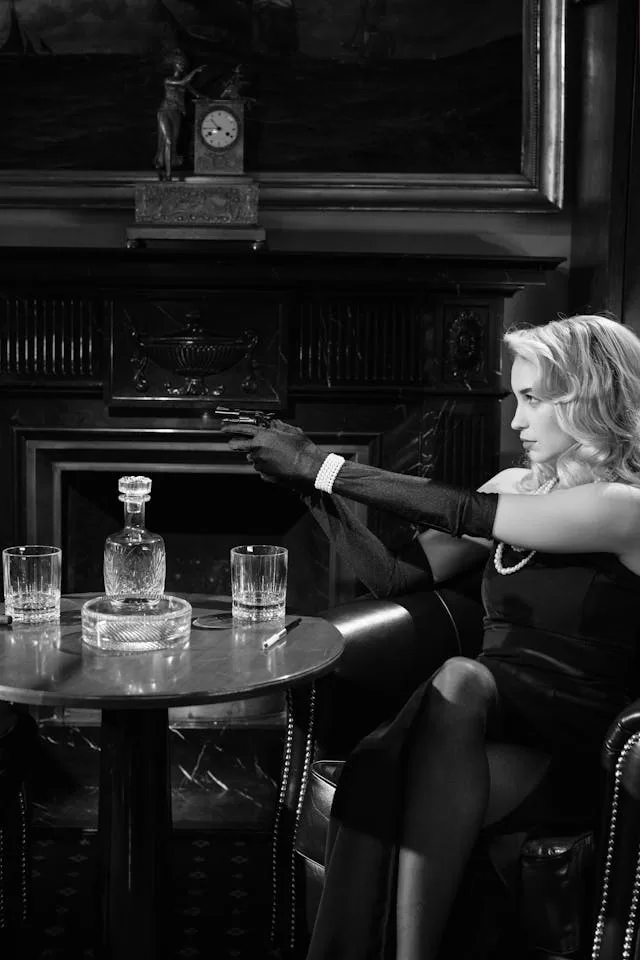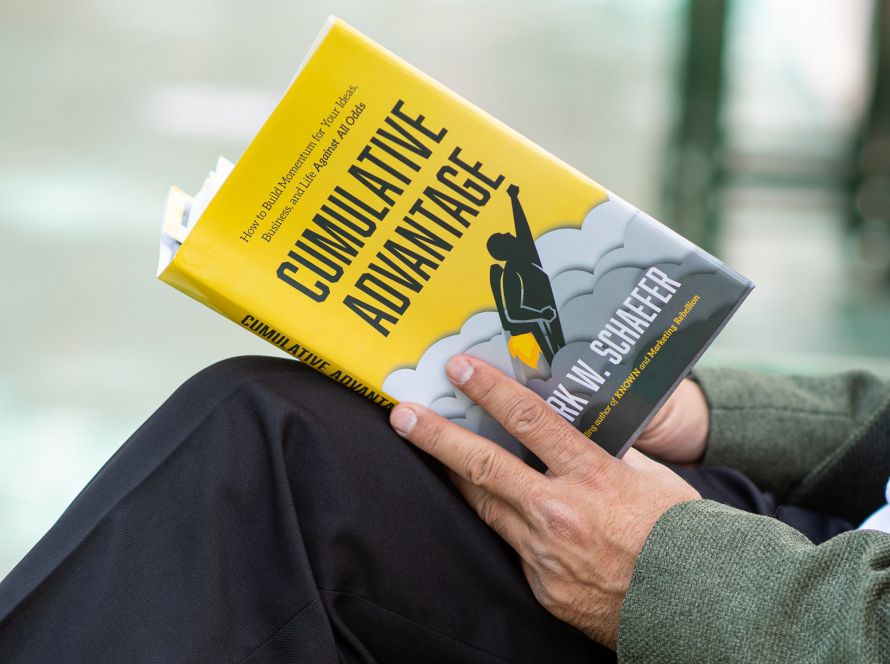
True Crime Novels Worth Checking Out
Let’s take a look at the seedy underbelly of the human psyche as we probe the space of non-fiction true crime books. These gripping narratives let readers get a closer feel into the minds of killers. The judicial system, and the chilling details of real-life criminal cases. From notorious serial killers to mysteries, each page is infused with suspense. Making it impossible to put these books down.
Put yourself in the meticulous research and compelling storylines that make non-fiction true crime books a genre of their own. With every turn of the page, you’ll be transported to crime scenes and courtrooms, feeling the adrenaline, fear, and curiosity that these real-life stories evoke.
Whether you’re a true crime aficionado or new to the genre, these books will satiate your hunger for suspense and intrigue. With meticulous attention to detail, authors bring these shocking stories to life, delving into the motives, psychology, and investigations behind some of the most infamous crimes in history.
Prepare yourself for a deep dive into the dark recesses of human behavior and the relentless pursuit of justice. Non-fiction true crime books will leave you questioning the very nature of good and evil while offering a chilling glimpse into the depths of the human soul.
Why are true crime books so popular?
True crime books have a longstanding and enduring popularity that continues to gain fans worldwide. But what is it about these stories of real-life crime that draws us in? One reason for their popularity is the innate human curiosity about the darker side of humanity. True crime books provide a safe and controlled environment for readers to explore the depths of human behavior without actually putting themselves in danger.
Another factor contributing to their popularity is the psychological aspect. True crime books often delve into the motives and psychology of criminals, offering insight into the minds of individuals who commit heinous acts. This exploration of the human psyche allows readers to gain a deeper understanding of the complexities of human behavior, often leaving them questioning their own beliefs and values.
Furthermore, true crime books offer a sense of justice and closure that may be lacking in real-life criminal cases. Through the pages of these books, readers can witness the investigation, the trial, and the eventual resolution of the crime. This provides a satisfying narrative arc that is often missing in real-life cases, where justice may remain elusive.
In addition, the rise of true crime podcasts and documentaries in recent years has also contributed to the popularity of the genre. These forms of media have brought true crime stories to a wider audience and sparked a renewed interest in the genre as a whole.
The narrative of true crime books
True crime books have a rich history that dates back centuries. One of the earliest examples of the genre is “The Newgate Calendar,” published in the 18th century. This collection of stories chronicled the lives and crimes of notorious criminals, providing readers with a morbid fascination for the criminal underworld.
In the 19th century, true crime books gained popularity with the publication of works like “The Confessions of a Thug” by Philip Meadows Taylor and “Jack the Ripper: The Whitechapel Murders” by Richard Whittington-Egan. These books explored sensational crimes and captured the public’s imagination.
However, it was not until the 20th century that true crime books truly began to flourish. In 1966, Truman Capote’s “In Cold Blood” was published, marking a turning point in the genre. This groundbreaking work blurred the lines between fiction and non-fiction, using narrative techniques to tell the story of a real-life murder case. Capote’s book was a critical and commercial success, paving the way for a new era of true crime storytelling.
Since then, true crime books have continued to evolve and diversify. Authors have experimented with different narrative styles, incorporating elements of memoir, investigative journalism, and psychological analysis. This has allowed the genre to appeal to a wide range of readers, from those interested in the gritty details of criminal cases to those fascinated by the psychological motivations behind criminal behavior.

Subgenres within true crime books
Within the broader genre of true crime, several subgenres cater to different interests and preferences. These subgenres offer readers a diverse range of stories and perspectives, ensuring that there is something for everyone.
One popular subgenre is the “serial killer” category, which focuses on the crimes and psychology of notorious serial killers. Books like “The Stranger Beside Me” by Ann Rule, which chronicles her relationship with serial killer Ted Bundy, provide a chilling glimpse into the mind of a killer.
Another subgenre is “cold cases,” which explores unsolved crimes and the ongoing efforts to bring the perpetrators to justice. Books like “The Case of the Golden State Killer” by Michelle McNamara shed light on these long-forgotten cases and the tireless work of investigators to solve them.
There is also a subgenre that focuses on the criminal justice system and the flaws and injustices within it. Books like “Just Mercy” by Bryan Stevenson highlight the systemic issues that plague the justice system and the fight for equal justice under the law.
Additionally, true crime books that examine white-collar crimes, political corruption, and organized crime offer a different perspective on criminal behavior. These books delve into the intricacies of financial fraud, political scandals, and the workings of criminal organizations, providing a unique angle on crime and its consequences.
Notable authors in the true crime genre
The true crime genre has produced many notable authors whose works have become classics in the field. These authors have made significant contributions to the genre through their meticulous research, compelling storytelling, and ability to shed light on the complexities of criminal behavior.
One of the most influential authors in the true crime genre is Truman Capote, whose book “In Cold Blood” is widely regarded as a masterpiece. Capote’s groundbreaking work blurred the lines between fiction and non-fiction, using narrative techniques to tell the story of the Clutter family murders in Kansas. His immersive storytelling and attention to detail set a new standard for true crime writing.
Another notable author is Ann Rule, who is often referred to as the queen of true crime. Rule’s extensive research and firsthand knowledge of the criminal justice system have made her books. Such as “The Stranger Beside Me” and “Small Sacrifices,” gripping and insightful reads. Her ability to humanize the victims and delve into the psychology of the killers. Has made her a beloved figure in the genre.
Michelle McNamara is another author who has made a significant impact on the true crime genre. Her book “I’ll Be Gone in the Dark,” which chronicles her obsession with the Golden State Killer case, received critical acclaim and helped reignite interest in the unsolved mysteries of crimes. McNamara’s dedication to justice and her unique storytelling style make her a standout author in the genre.
Other notable authors in the true crime genre include Erik Larson. He seamlessly blends true crime with historical events in books like “The Devil in the White City.”Bryan Stevenson, whose book “Just Mercy” explores the flaws within the criminal justice system. These authors, among many others, have shaped the true crime genre and continue to push the boundaries of storytelling.
The impact of true crime books on society
True crime books have had a significant impact on society. Influencing not only popular culture but also the criminal justice system itself. These books have the power to raise awareness of unsolved cases, shed light on injustices, and inspire change.
One of the most notable examples of the impact of true crime books is the case of the Golden State Killer. Michelle McNamara’s book “I’ll Be Gone in the Dark” brought renewed attention to the unsolved crimes committed by the Golden State Killer in the 1970s and 1980s. The book sparked a public fascination with the case, leading to the eventual arrest and conviction of the perpetrator.
True crime books have also played a role in exposing wrongful convictions and advocating for criminal justice reform. Books like “Just Mercy” by Bryan Stevenson and “The Innocent Man” by John Grisham highlight the flaws and injustices within the system, prompting public outrage and calls for change.
Furthermore, true crime books have become a cultural phenomenon. Inspiring podcasts, documentaries, and even television series. Shows like “Making a Murderer” and “Mindhunter” have captivated audiences and sparked nationwide discussions about the criminal justice system and the nature of guilt and innocence.
While the impact of true crime books is undeniable. It is important to recognize the ethical considerations involved in writing and consuming this genre. The line between entertainment and exploitation can sometimes become blurred. Authors must tread carefully to ensure that the victims and their families are treated with respect and dignity.
Ethical considerations in writing and consuming true crime books
As true crime books continue to gain popularity, it is essential to consider the ethical implications of writing and consuming these stories. While these books offer a glimpse into the darkest aspects of human behavior, it is crucial to approach them with empathy and respect for the victims and their families.
Authors of true crime books have a responsibility to conduct thorough research and present the facts accurately. They should strive to humanize the victims, focusing not only on the crimes committed against them but also on their lives and the impact they had on their communities. Sensationalism and exploitation should be avoided at all costs.
Similarly, readers of true crime books must approach these stories with sensitivity. It is important to remember that these are real crimes with real victims who have suffered unimaginable pain. Treating these stories as mere entertainment without considering the human cost can be disrespectful and dehumanizing.
Additionally, consumers of true crime books should be mindful of the potential for voyeurism and the fetishization of violence. It is essential to engage with these stories critically and to reflect on the motivations behind our fascination with true crime. By acknowledging the ethical considerations involved. We can ensure that the genre is approached with empathy and respect.
How to choose a true crime book to read
With the abundance of true crime books available. It can be overwhelming to choose which ones to read. Here are some tips to help you find the perfect true crime book for your interests:
- Research the author: Look for authors who are respected in the genre and have a reputation for thorough research and compelling storytelling. Reading reviews and checking their credentials can give you an idea of their expertise and writing style.
- Consider the subgenre: Determine which subgenre of true crime interests you the most. Whether you prefer serial killer cases, mysteries, or examinations of the criminal justice system, there is a true crime book out there for you.
- Read reviews: Check out reviews from trusted sources or fellow true crime enthusiasts. Pay attention to both positive and negative reviews to get a well-rounded perspective on the book.
- Browse bookstores and libraries: Visit your local bookstore or library and peruse the true crime section. Read the synopses and flip through the pages to get a sense of the author’s writing style and the overall tone of the book.
- Seek recommendations: Ask friends, family, or online communities for recommendations. True crime enthusiasts are often eager to share their favorite books and authors.
Remember, reading true crime books can be an intense and emotional experience. Take breaks if needed and prioritize your mental well-being while delving into these dark narratives.
Recommended true crime books for different interests
Whether you’re a true crime aficionado or just dipping your toes into the genre. Here are some recommended books to suit different interests:
- Serial killer cases: “The Stranger Beside Me” by Ann Rule, “Helter Skelter” by Vincent Bugliosi, and “The Devil in the White City” by Erik Larson.
- Unsolved mysteries: “I’ll Be Gone in the Dark” by Michelle McNamara, “The Black Dahlia” by James Ellroy, and “Zodiac” by Robert Graysmith.
- Criminal justice system: “Just Mercy” by Bryan Stevenson, “The Innocent Man” by John Grisham, and “The Executioner’s Song” by Norman Mailer.
- White-collar crimes: “Bad Blood” by John Carreyrou, “The Smartest Guys in the Room” by Bethany McLean and Peter Elkind, and “Catch Me If You Can” by Frank Abagnale.
These recommendations are just a starting point, and countless other true crime books are waiting to be discovered. Explore different subgenres and authors to find the stories that resonate with you.
Conclusion: The enduring appeal of true crime books
True crime books continue to thrill readers with their gripping narratives and exploration of the darker aspects of human behavior. From notorious serial killers to unsolved mysteries. These stories offer a glimpse into the complexities of crime and the relentless pursuit of justice.
With meticulous research and compelling storytelling, authors transport readers to crime scenes and courtrooms. Immersing them in the chilling details of real-life criminal cases. These books not only satisfy our curiosity about the darker side of humanity but also challenge our understanding of good and evil.
However, it is important to approach true crime books with empathy and respect for the victims and their families. By considering the ethical considerations involved and engaging with these stories critically. We can ensure that the genre is approached responsibly.
Choose your next read wisely, and prepare to be captivated by the chilling realities that lie within the pages.






